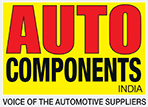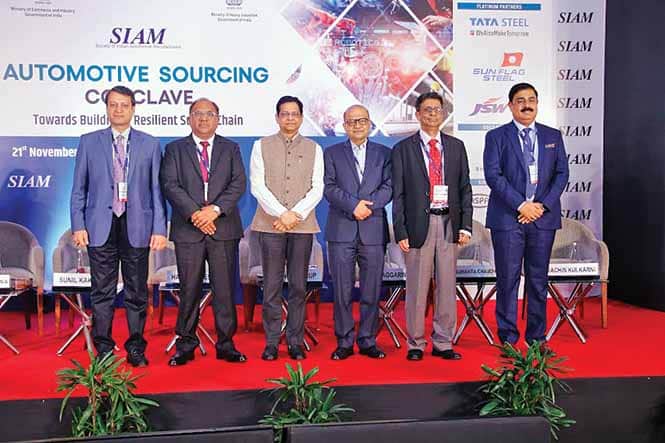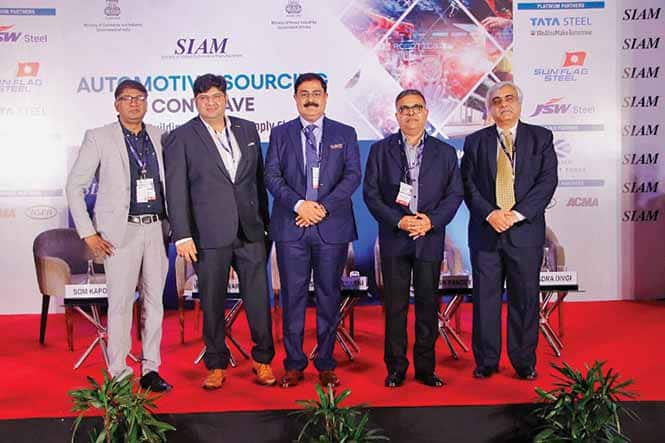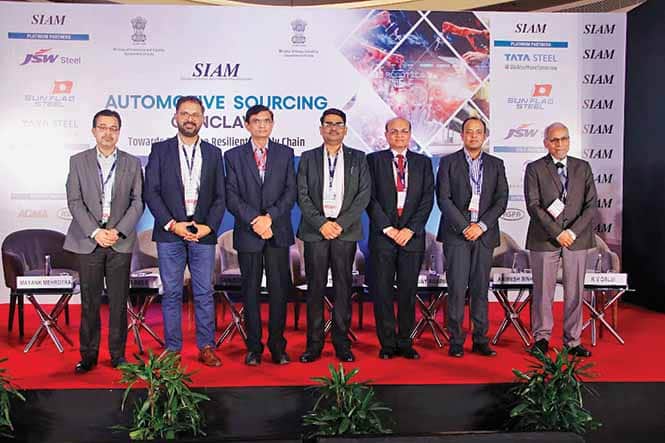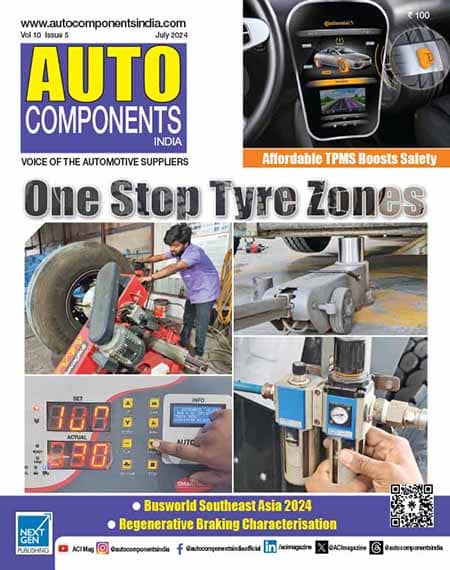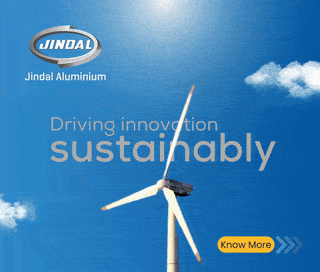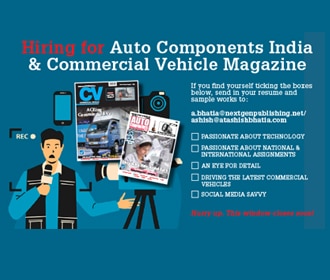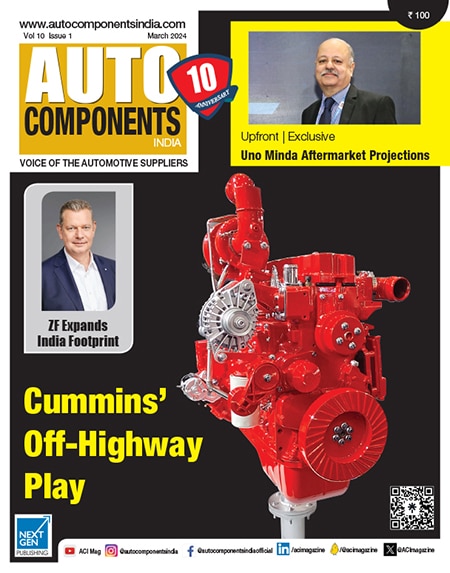With localisation being at the heart of the Indian Government’s policies, developing a robust raw material supply chain to ensure a smooth manufacturing process is the need of the hour, writes Prajakta Chavan Rane.
Considering the growing call for ‘Make in India’ components, Original Equipment Manufacturers (OEMs) both Indian and International are consciously sourcing a major chunk from Indian tier suppliers today. However, despite having numerous procurement options today, bottlenecks persists in the supply chain. The Society of Indian Automobile Manufacturers (SIAM), the apex body of the automobile industry, has been active on the front. For instance, at the Automotive Sourcing Conclave under the theme ‘Towards Building a Resilient Supply Chain’ late last year, the apex body set the foundation for future actions. These will begin to reap rich dividends as 2024 progresses. Namely, ensuring smooth supply of auto components for hi-end cars, commercial vehicles, high-duty commercial vehicles, electric-vehicles including two-wheelers, passenger cars, and commercial vehicles both light and heavy duty, electric buses and so on. Considering the magnificent transformation Indian road automotive industry is undergoing such conclaves act as torch bearers.
Critical components
The conclave addressed critical areas in the supply chain, including procurement of EV components, electronics and electrical, transmission systems, and metals from local options at the industry’s disposal. “SIAM and Automotive Component Manufacturers Association of India (ACMA) work in close collaboration with the Government of India. Their role plays a pivotal role in shaping policies. The essence of these policies, particularly in the automotive industry, revolves around localisation, which is the heart of the Government’s approach, “ averred Guest of Honour, Dr Hanif Qureshi, Joint Secretary at the Ministry of Heavy Industries, Government of India. “There is substantial potential for domestic value addition within the country. The growth trajectory is marked by advanced automotive components and R&D in this sector must be promoted,” urged Dr Qureshi. While addressing the dignitaries comprising several coveted speakers, senior government officials, sourcing heads of Automobile companies, and experts from the automobile supply chain, Guest of Honour, Anant Swarup, Joint Secretary at the Ministry of Heavy Industries and the Department of Commerce, Government of India, put forth his point of view. He said, “In the recently held G7 Trade Ministers meeting on Resilience Supply Chain. Suzuki san presented a case study on how Suzuki arrived in India and its journey. He drew attention to the early days when only two vendors were part of the ecosystem, Back then the company was left perplexed and faced the daunting task of producing vehicles in India”.
New-age procurement
Procurement has come off age today. The deliberation highlighted the robust ecosystem of auto components in India. Swarup thanked the dignitaries in the audience for their contribution to the growth of the auto Industry in India. He however urged the stakeholders to look at the headroom for further localisation expressing confidence in the collective potential to realise the common goal. A digital showcase of localisation opportunities for the vendors in the Indian auto sector was well received. There was sensitisation on the localisation efforts in turn generating business for the local vendors. Their employment generation potential was also acknowledged at the forum. It was unanimously agreed that a boost to localisation could have a domino effect on opportunities for technological advancements, innovations, and business realisations in the exports market. “The process of localisation is poised to reduce costs substantially, generate more employment opportunities, and further enhance export. The deliberation at the conclave will help us to formulate a robust action plan, gaining insights on how we can localise and align our efforts with the Government of India’s objectives,” Vinod Aggarwal, President of SIAM and CEO & MD of VE Commercial Vehicles Ltd. stated.
Scaling up
While several speakers stressed upon the need to localise and strengthen the local supply chain there was a new dimension that came into focus. Sunil Kakkar, Chairman of SIAM Aatmnirbhar Bharat Sourcing Group and Senior Executive Director at Maruti Suzuki India Ltd. opined, “This is the best time to invest and scale localisation for Indian Auto OEMs and tier suppliers.” Even as Indian policies and manufacturer’s efforts are to elevate exports, India still needs to import some auto components, especially transmission systems. The insightful discussion was held during the subject of discussion ‘Trends in Automotive Transmission’.
Citing statistics, Sachin Kulkarni, Co-Chairman SIAM Aatmnirbhar Bharat Sourcing Group and Senior Executive Director at Skoda Auto Volkswagen India Pvt. Ltd. focused on the imports data. He said, “The import reports reveal that in 2023 and 24 transmission system imports would increase to the scale of Rs.8000 crore. We are seeing de-growth in entry-level cars and consumers are opting for higher-end cars in the last two or three years.” Sharing a perspective on behalf of his peers, he cited that an OEM today is hoping for global transmission manufacturers to invest in India. Looking at the growing demand for automatic transmission systems, SIAM, ACMA, and the Indian Government need to form one team to work in unison for promoting localisation of automatic transmissions.
Commodities
In the session themed on ‘Specialised Metals and Raw Materials for the Auto Sector’, Badrish Sinha, Co-Chairman of SIAM Aatmnirbhar Bharat Sourcing Group and Vice-President – Purchasing, VE Commercial Vehicles lauded the competency of Indian steel mills. He explained, “Indian steel mills have the competency and efficiency to compete with global markets and by working closely with the steel mills it was possible to curb steel imports.” Speaking of ‘Opportunities in EV Components, Electricals, and Electronics Supply Chain’, Veeraraghavan R, Co-Chairman SIAM Aatmnirbhar Bharat Sourcing Group and Senior Vice President – Strategic Sourcing, Mahindra & Mahindra, pointed at the growing demand for electronics, He urged, “Considering the growing demand of electronics, this is a very critical area for us as an Industry to localise. We also need to secure our supply of semiconductors.” Adding to this Harendra Saksena, Chief Purchasing Officer, Ather Energy Pvt. Ltd., spoke of the huge market of two-wheelers in India. “EV adoption of two-wheelers will reach 60 per cent by 2030, which will create huge demand for electronics and electricals in the segment,” he concluded. ACI
